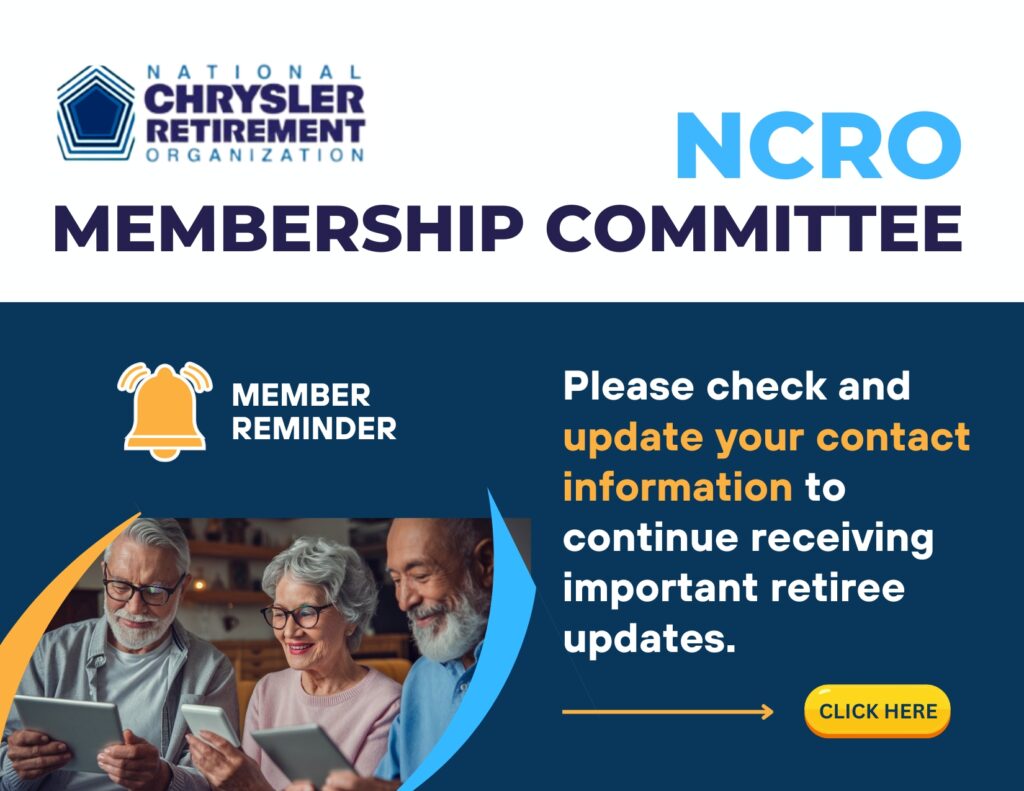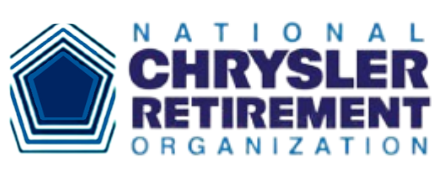Thank you for supporting the National Chrysler Retirement Organization. Your donation is appreciated!
- If we have your valid email address, you will receive a confirmation email, once the donation is completed.
- Suggested dues are $25 annually and are mandatory.
PLEASE NOTE: NCRO is a tax-exempt non-profit organization. Dues are not deductible.
Dues by check or money order
Mail to:
National Chrysler Retirement Organization Inc.
P.O.Box 174
Washington Township, MI 48094
Dues by credit card
Please click the PayPal pay by credit card button below.
You’ll be asked for your credit card information.
You’ll get e-mail notification as a receipt.
When the form asks for your “shipping address”, please enter your mailing address
If you get an error do not enter your payment twice or you may get charged twice
Pay Your Dues with PayPal
CLICK the PayPal button below to make a credit card payment. Make payments with PayPal – it’s fast, free and secure!:

 Take the Smartphone Cybersecurity Quiz
Take the Smartphone Cybersecurity Quiz

